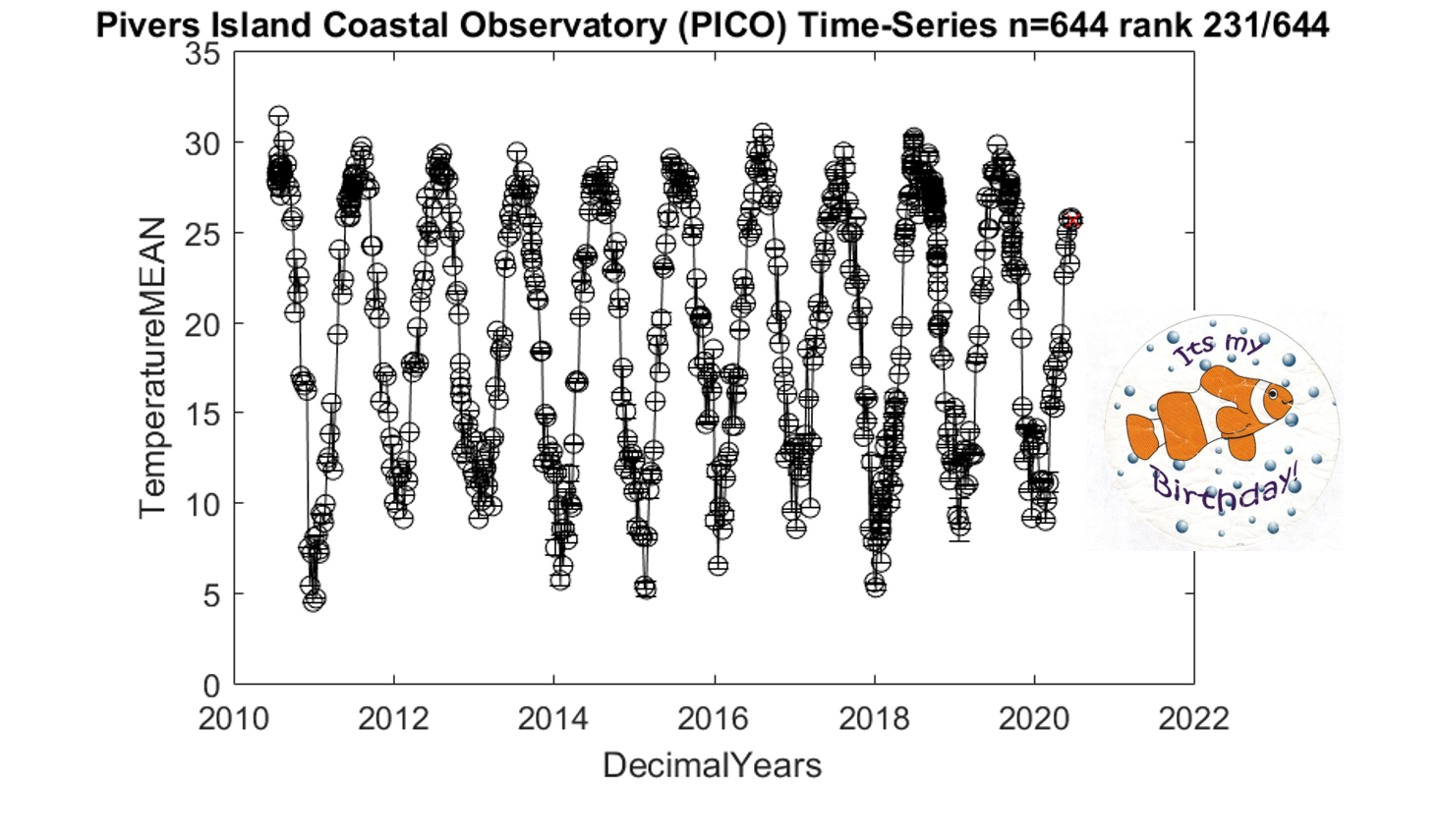PhD Graduate student Junyao Gu produced podcast on our group’s efforts to develop marine microalgae as a sustainable platform for fuel, feed and food has just been released. Her from current and former students and researchers on the group’s efforts and how their participation helped shape their career trajectory. https://sites.nicholas.duke.edu/seastheday/2022/11/02/episode-24-algae-biofuel-the-future/
outreach
The Pivers Island Coastal Observatory turned 10-years old today! What started out as an undergraduate summer project focused on nearshore ocean acidification, has blossomed into a comprehensive microbial and biogeochemical time-series with more than 1000 time points (and still going) and with extensions to the open ocean. We look forward […]
The Duke Marine Lab’s Biological Oceanography 2020 class was held aboard the new Duke University research vessel R/V Shearwater. The 77′ power catamaran is a all purpose research vessel with a cruising speed of >20 knots and better than 1000 miles radius. The research vessel had three crew along with […]
Led by Sara, Courtney and Jess, the marine microbe group tree was the ‘crowd favorite’ at this year’s Gingerbread Festival Crab Pot Christmas Tree decorating contest. The tree, themed Sparkling Science in the Deep Blue Sea, was loaded with ornaments that highlight the various types of marine science research and […]
The Johnson Lab hosted several presentations and demonstrations as part of DUML Open House 2019. The exhibits focused on the diversity and role of algae / phytoplankton in the coastal ocean as well as the biotechnological applications of algae for sustainable food, feed and fuels. Hundreds of visitors were able […]
The Pivers Island Coastal Observatory (PICO) weekly (and sometimes more) time-series turned nine today. Started in 2010 as an undergraduate independent student project focusing on ocean acidification, the coastal time-series has matured into a long term coastal sentinel, observing seasonal, yearly and interannual changes in the physics, chemistry and biology […]
Peggy Mullin, visiting UNC student who is working with the Johnson Lab on modeling outdoor large scale algae growth, successfully defended her undergraduate honor’s thesis. The thesis, “Development of a laboratory metric to predict large scale algae productivity” uses small scale, rapid laboratory measurements in conjunction with environmental data and […]
The annual Duke Marine Lab Open House had exceptional attendance this year as it coincided with alumni weekend and a visit from Duke University President Vincent Price. Johnson Lab members hosted two stations at Open House on the sunny July afternoon. One station showcased the open raceway ponds, a feature […]
The Pivers Island Coastal Observatory (PICO) weekly (and sometimes more) time-series turned eight today. Started in 2010 as an undergraduate independent student project focusing on ocean acidification, the coastal time-series has matured into a long term coastal sentinel, observing seasonal, yearly and interannual changes in the physics, chemistry and biology […]
Volunteers from over a dozen regional institutions welcomed over 160 middle school girls to the event this Saturday. GEST’s mission is to provide hands-on STEM opportunities and female STEM role models to girls in eastern NC. PhD students Courtney Swink and Sarah Loftus were on the GEST planning team, which […]









